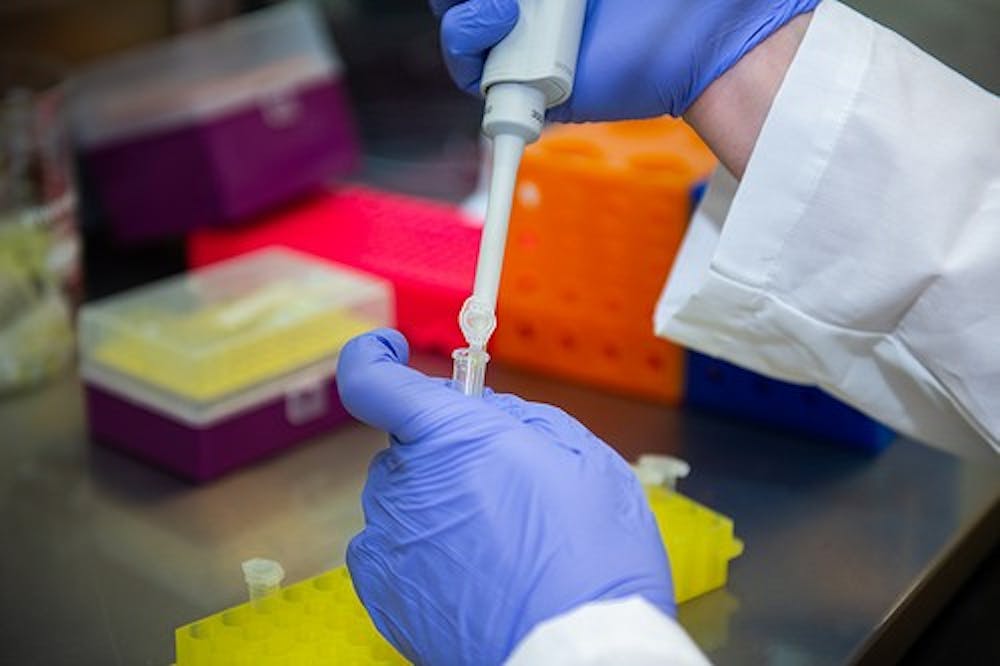Auburn University is following through with the vision President Steven Leath set forth.
Auburn has announced a $5 million investment into 11 research projects ranging from 3-D printing of biomedical implants to the medical use of olive oil for patients with Alzheimer’s disease.
“Auburn research is on the move,” Leath said. “Our world-renowned faculty are leading Auburn in our drive to solve problems, provide real-world benefits and serve the social good.”
The investment is part of an initiative funded through the Presidential Awards for Interdisciplinary Research, PAIR, which Leath created in his first year as President. The funding through PAIR will span three years.
Some of the other topics being looked at include rural health disparities in low-income areas, neuroscience research and graduate education and controlling carbon dioxide pollution.
Of the 101 proposals submitted, 11 projects were selected to receive funding. For a more detailed description of each project, visit Auburn Inspires.
Creating better biomedical implants for patients in need using additive manufacturing or “3-D printing”
The research team will help push forward an industry that looks to make implants more efficacious and cost effective. This process allows for more customizable parts, which aims to reduce infections that can follow transplants.
Unlocking home affordability and prosperity in rural America
Researchers will work toward creating a National Institute of Rural Prosperity to increase affordable options in rural communities. The institute will work to foster partnerships that will focus on removing barriers such as mortgage lending, home insurance and local ordinances.
Reducing the burden of neurological disease by increasing fundamental knowledge about the brain and nervous system
Experts in chemistry, physiology, development, degeneration and imaging of the brain will collaborate to develop a neuroscience center to increase fundamental knowledge of the brain. The research will be used to mitigate mental, neurological and substance-abuse disorders. These disorders make up a substantial portion of the world’s diseases.
A mobile mitochondria laboratory (AU MitoMobile) to lead the world in measuring bioenergetics in natural settings
An interdisciplinary team made up of members of evolutionary biologists, environmental biologists, exercise physiologists and engineers will develop a mobile laboratory for measuring mitochondria. Research on mitochondria can be extremely limited in the laboratory setting, so the mobile center should be more effective at understanding genetic and environmental impacts.
Rural African-American research
Generally, rural African-Americans have a lower life expectancy and a faster progression of age-related diseases. Researchers will set up a sustainable research structure in east-central Alabama to look at how psychosocial factors impact African-Americans.
Reducing and reusing carbon dioxide emissions for useful needs
Auburn researchers will develop and build an Alabama CO2 Utilization and Storage Center at the University with the goal of becoming a leader in gathering CO2 and converting it into useful tools such as green fuel sources.
Extra virgin olive oil examined for uses in treating hallmarks of Alzheimer’s Disease
A pilot study will look at the potential for the medical benefits of the consumption of extra virgin olive oil. The data collected will be submitted to funding agencies for the possibility of a clinical trial.
Drugs from dirt: development and characterization of novel antimicrobial compounds
Researchers will test new therapeutic methods for treating infectious diseases through the study of antibiotic producing cultures that were discovered in soil. As diseases have become more immune to antibiotics currently used, new methods could have massive potential in human medicine, agriculture and veterinary medicine.
Creating a climate information system to aid in planning for climate-related disasters
An interdisciplinary team of investigators will create a Unified Climate Information System to curve the severe effects of natural disasters in local, regional and global scales. The team will also create models for water quantity, water quality, crop growth and disease transmission. The interactive website will focus on the southeastern United States, but it will provide models easily adaptable to places around the world.
Emerging contaminants research team
Experts from civil engineering, pharmacology, aquatic sciences and other areas will collaborate to look at the effects of newly recognized contaminants such as per- and polyfluoroalkyl substances, which have a limited amount of research.
Development of the AU-NASH research program
The research team will develop and test therapies for non-alcoholic steatotic hepatitis, which is the most severe form of non-alcoholic fatty liver disease and currently has no approved treatment methods.
Do you like this story? The Plainsman doesn't accept money from tuition or student fees, and we don't charge a subscription fee. But you can donate to support The Plainsman.





